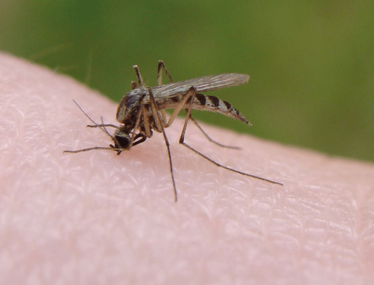Dengue Vaccine 101
What sparked fears and prompted an anti-vax movement in the Philippines?
What is dengue?
Dengue is a mosquito-borne flavivirus disease with no approved drugs for treatment. Infection can vary from a flu-like illness to hemorrhagic fever. According to Sanofi-Pasteur, surveillance data from some endemic countries indicate that 70 to 90 percent of people will have been exposed to dengue at least once by the time they reach adolescence (1). The highest risk of experiencing more severe disease tends to be seen in people infected for the second time by a different dengue virus.
What is Dengvaxia?
Dengvaxia is the first vaccine in the world to be licensed for dengue. It was first registered in Mexico in December 2015 by Sanofi and has been evaluated as a three-dose series on a 0/6/12 month schedule in Phase III clinical studies. It has been approved by 19 regulatory authorities for use in endemic areas and introduced in two subnational programs in the Philippines and Brazil.

What sparked the controversy?
In November 2017, Sanofi updated the product information about the vaccine based on long-term data. Differences in vaccine performance were identified based on prior dengue infection; the vaccine was found to provide “persistent protective benefit against dengue fever” in those who had prior infection. Those who had not been previously infected by dengue virus may, in the longer term, experience more cases of severe disease upon dengue infection.
What has happened in the Philippines?
Over 700,000 children in the Philippines were vaccinated with Sanofi’s Dengvaxia in 2016, but the vaccination program was suspended after Sanofi’s announcement – and there are concerns in the Philippines that a small number of children may have died because of the vaccine. After examining the bodies of 14 children who died after receiving the vaccine, the University of the Philippines-Philippine General Hospital says that three children died of dengue (2). The panel has not determined if Dengvaxia itself is responsible for the deaths, but a task force will be investigating the matter, and a lawsuit has already been filed against Sanofi seeking compensation for the parents of a 10-year old girl. The bodies of another 14 children are also to be exhumed and examined.
The Philippines Health-Under-Secretary, Enrique Domingo, has reportedly said that many parents in the country are now refusing to get their children vaccinated for polio, chicken pox and tetanus (3).
How has Sanofi responded?
Sanofi says that no deaths resulting directly from Dengvaxia have ever been reported in clinical trials (conducted over a decade). After the vaccination program was suspended, the Philippines requested a refund from Sanofi. Sanofi has agreed to reimburse the Philippine government for leftover doses of the vaccine, but has refused requests to refund used doses, as the company does not want to imply that the vaccine is ineffective. The vaccine has been described as 65 percent effective at reducing dengue cases, and prevented more than 80 to 90 percent of severe cases of dengue (4).
How has the World Health Organization reacted?
As a precautionary and interim measure, WHO recommends that Dengvaxia only be administered to individuals that are known to have been infected with dengue prior to vaccination (5).
- Sanofi, “Sanofi updates information on dengue vaccine,” (2017). Available at: bit.ly/2jz0lcJ. Last accessed February 12, 201.
- Rappler, “DOH considers UP-PGH findings as primary 'evidence’ on Dengvaxia,” (2018). Available at: bit.ly/2CeULnn. Last accessed February 12, 201.
- BBC News, “Philippines gripped by dengue vaccine fears,” (2018). Available at: bbc.in/2H8kYHK. Last accessed February 12, 201.
- Sabin Vaccine Institute, “Statement by the Dengue Vaccine Initiative on Mexico’s Regulatory Approval of Sanofi Pasteur’s Dengue Vaccine, Dengvaxia,” (2015). Available at: bit.ly/2G8J8Rb. Last accessed February 12, 201.
- WHO, “Updated Questions and Answers related to information presented in the Sanofi Pasteur press release on 30 November 2017 with regards to the dengue vaccine Dengvaxia,” (2017). Available at: bit.ly/2jNtgK9. Last accessed February 12, 201.

Making great scientific magazines isn’t just about delivering knowledge and high quality content; it’s also about packaging these in the right words to ensure that someone is truly inspired by a topic. My passion is ensuring that our authors’ expertise is presented as a seamless and enjoyable reading experience, whether in print, in digital or on social media. I’ve spent fourteen years writing and editing features for scientific and manufacturing publications, and in making this content engaging and accessible without sacrificing its scientific integrity. There is nothing better than a magazine with great content that feels great to read.



















